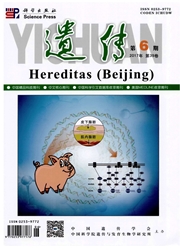

 中文摘要:
中文摘要:
传统观念认为细菌是一种个体的、非社会性的生物体。近年来的研究表明细菌可以产生化学信号并通过它们实现细菌间信息传递。细菌的群体感应调节系统(Quorum sensing,QS)调节着个体细胞之间的相互合作,使其表现出类似多细胞的群体行为。文章以近年来的一些最新研究进展为基础,在了解细菌间的信息传递系统的基础上,从进化角度讨论了QS系统的遗传产生过程,探讨了细菌细胞间的相互作用。细菌间的信息交流是一种动态的过程,受到了环境中的营养物质的水平、温度、pH等多种因素的影响。作者推测细菌信号传递系统的进化是受到环境条件以及基因交换、所在微生物群体变化等因素影响下的一种不断变化的动态过程,这也许有别于动植物这类的高等生物的进化过程。这种动态的变化过程也就暗示:从长远来看,信息传递系统中的偷机者只是在一定条件下的暂时存在。
 英文摘要:
英文摘要:
In contrast to the individual and nonsocial organism view of bacteria, recent discoveries show that bacteria can communicate and exhibit population behaviour via a system known as quorum sensing. Some bacterial behavious can only be initiated when the cell number reaches a certain level (Quorum sensing, QS). It is generally believed that quorum sensing is used to coordinate cooperative behaviours at the population level; however, many issues exist regarding the evo- lution or development of such a system. In the present paper, the evolutionary process of bacterial quorum-sensing systems is discussed based on recent events and progresses in this field. As quorum sensing systems are often affected by environ- mental factors, such as temperature, pH, and nutrient levels, it is hence proposed that the evolution of bacterial cooperation, such as the quorum sensing, is rather a dynamic and ever-changing process which is radically affected by environmental conditions, genetic exchanges, as well as by changes in microbial community. The dynamic transformation suggests the advantages of cheaters of the system might have been short-lasted and confined in certain conditions and diminish over a long run.
 同期刊论文项目
同期刊论文项目
 同项目期刊论文
同项目期刊论文
 Characterization of a cryptic plasmid from Pseudomonas sp and utilization of its temperature-sensiti
Characterization of a cryptic plasmid from Pseudomonas sp and utilization of its temperature-sensiti 期刊信息
期刊信息
